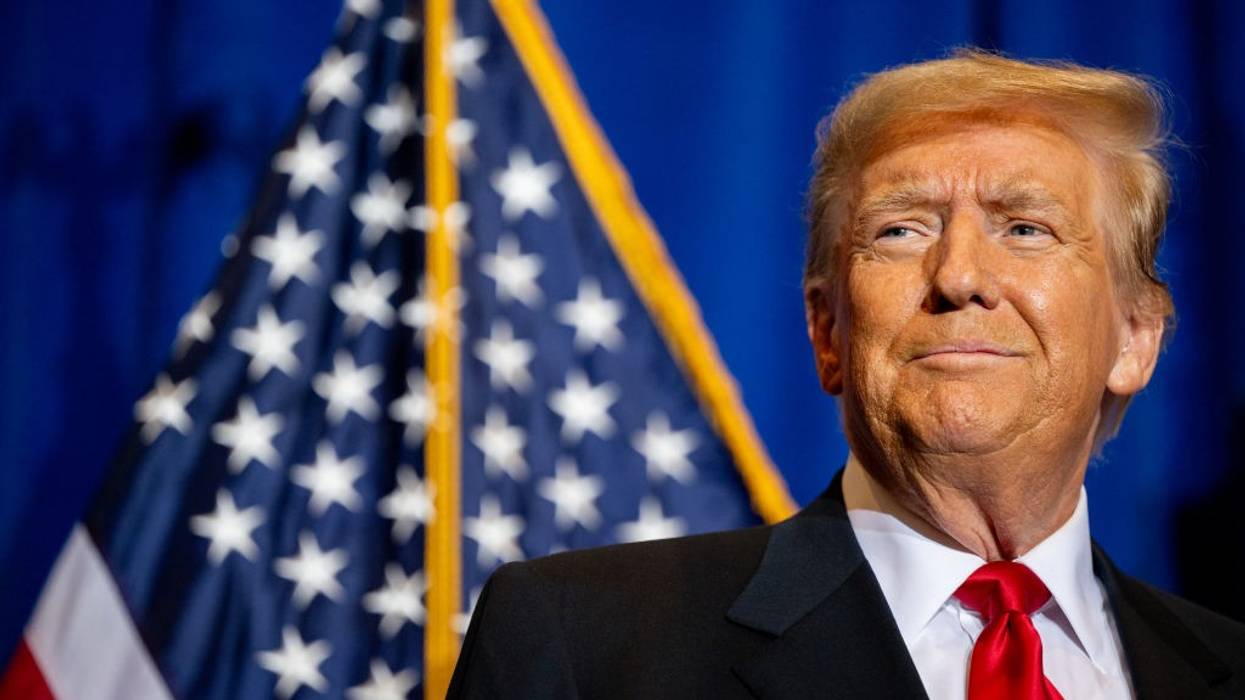As Communities Say 'ICE Not Welcome,' Maine Halts Undercover License Plates for Federal Agents
"Maine is our home," said Democratic US Senate candidate Graham Platner, "and we’re not going to let ICE agents terrorize our communities without resistance."
As residents of Maine continue to prepare for and speak out against an anticipated surge of federal immigration agents operating in their communities, Secretary of State Shenna Bellows over the weekend suspended the issuance of undercover license plates requested by the US Border Patrol.
With Immigration and Customs Enforcement (ICE) officers and others continuing to terrorize Minneapolis, people in Maine have been on high alert since last week, when reports indicated that Maine was next on the target list of President Donald Trump and Homeland Security Secretary Kristi Noem.
“These requests in light of rumors of ICE deployment to Maine and abuses of power in Minnesota and elsewhere raise concerns,” Bellows said in a written statement on Saturday.
"We have not revoked existing plates but have paused issuance of new plates," she added. "We want to be assured that Maine plates will not be used for lawless purposes."
"Those wielding Trump's fascist agenda to divide us will fail because in Maine we stand with and will always protect our immigrant neighbors." —Shenna Bellows, Maine Secretary of State
Use of unmarked vehicles has been a hallmark of ICE and Border Patrol operations during Trump's second term, with agents—many of them masked—using the cars to swoop into work sites, bus stops, retail locations, and residential neighborhoods to target people they claim are in the country unlawfully.
"ICE’s lawless tactics are not welcome in Maine," Bellows said in a social media post last week. "In the United States, people cannot be taken off the street by masked agents, thrown in unmarked cars, and disappeared. That’s kidnapping, not law enforcement. Those wielding Trump's fascist agenda to divide us will fail because in Maine we stand with and will always protect our immigrant neighbors."
Ryan Guay, a supervisory deputy for the US Marshals Service District of Maine, told the Portland Press Herald he was surprised to learn of the change and warned that not having "covert status" would negatively impact the ability of federal agents to operate safely in the state.
“This is a drastic change from historical precedent that gives us great concern,” said Guay, who added that next steps were being explored. “I’m engaged with our national office and offices around the country to kind of figure out what to do, as this is not a common occurrence at all,” he said.
On Friday, the ACLU of Maine, where Bellows once worked as executive director, released guidance for community members fearful of the increased presence and harassment by federal agents.
“The ACLU of Maine condemns this agency’s brutal, unlawful, and unprecedented assault on communities across the country,” said ACLU of Maine executive director Molly Curren Rowles. “Every person in the United States has the fundamental freedom to speak out, move around our communities, and gather together. ICE’s reckless actions and lack of accountability are making all people less safe and threatening our basic constitutional rights. This should not be a politicized issue. The United States is not a place where civilians face masked, armed troops and agents in our streets. If we believe in the vision of this country as the ‘Land of the Free’ then we all must get involved to support the rule of law and demand that Congress stop ICE funding and bring the agency under control.”
Large protests against the arrival of more federal agents took place in downtown Portland, the state's largest city, on both Saturday and Sunday. Both Portland and Lewiston, the second largest city in the state, have large refugee and immigrant communities, putting residents in those communities on heightened alert.
Graham Platner, running in the Democratic primary for US Senate, said in a video posted to social media over the weekend that it's vital for Mainers to care for their vulnerable neighbors and understand their rights when it comes to interacting with federal immigration officials.
"Maine is our home, and we’re not going to let ICE agents terrorize our communities without resistance," said Platner.
Maine is our home, and we’re not going to let ICE agents terrorize our communities without resistance.
What to expect in the coming days, and what you can do about it: pic.twitter.com/9N1hIyvcug
— Graham Platner for Senate (@grahamformaine) January 17, 2026
Jacob Ellis, an organizer of weekend protests in Portland, said the message people in the city most want conveyed to ICE agents is this: “You are not welcome here. You will never be welcome here.”


